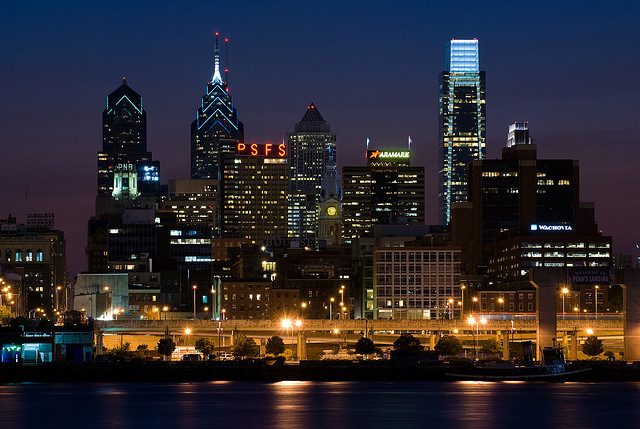
Bright spots in community engagement: Philadelphia – ‘Civic Fusion’ at work
The following is part of blog series highlighting communities profiled in “Bright Spots in Community Engagement,” a report authored by the National League of Cities with support from Knight Foundation. It is written by Chris Kingsley, Senior Associate at the National League of Cities. It originally appeared on the National League of Cities’ blog citiesspeak.org. Related blog posts includ in-depth looks at Detroit, Macon, Ga. and Charlotte N.C, San Jose, Calif., St. Paul, Minn. and Akron, Ohio.
“My belief is that if we keep helping these good guys [in City Hall] do good work, their colleagues will need to learn the value of partnering with engaged citizens.” — Alex Hillman, Indy Hall
For several decades after its industrial heyday, the City of Philadelphia suffered the steady outflow of residents, neighborhoods slowly emptying out even as the city’s prestigious universities attracted greater numbers of educated young people to the region.
This “brain drain” was severe: as recently as 2004, a study from the Economy League of Greater Philadelphia found that fewer than 30 percent of out-of-state students that attended Philadelphia-area colleges remained in the area after graduating. They took their talents instead to New York, San Francisco, and Austin – cities with strong reputations for finance, technology, arts and culture, and entrepreneurialism. Related Links

And then this began to change – slowly, at first, and then so rapidly that by 2010, when the nonprofit Campus Philly repeated the Economy League’s study, a strong majority (61%) of out-of-state students graduating from Philadelphia colleges indicated that they had remained in the city. The decennial census showed Philadelphia’s population holding steady for the first time since 1950, but this headline figure masked a very encouraging increase of 50,000 25-34 year olds absorbed by newly fashionable neighborhoods around the business district’s perimeter.
In concert with this demographic change there has been a sustained and imaginative effort from the mayor’s office, from philanthropists such as the Knight Foundation and city boosters such as Select Greater Philadelphia and Campus Philly to engage young Philadelphians as entrepreneurs and civic leaders.
Bright spots include loosely-knit collaboratives such as “Open Access Philadelphia” (OAP), which have built the tools and relationships that help fuse young activists and entrepreneurs to the civic life of the city:
- In 2010, joining a broad coalition that won $12 million for the city to expand broadband access, mostly through the services of existing nonprofits
- In 2011, launching the city’s Open Data Portal during the city’s first “Tech Week” and hosting the first cohort of Code for America fellows
- In 2012, working collaboratively with Mayor Michael Nutter’s administration to issue an executive order committing the city to data sharing and hiring the city’s first Chief Data Officer, Mark Headd, formerly of Code for America.
While this work has not been driven primarily by city officials, Chris Wink of Technically Philly (an organization often described as the Philadelphia tech scene’s “Rolling Stone”) embraced the city’s support: “when the people who are charged with securing the future of your city embraces innovation, it sends a message that Philadelphia is moving past the decline that has characterized it since the 1970s.” Related Link

“Engage Philadelphia: What happens when tech entrepreneurs and city leaders collaborate” on KnightBlog
This week, Philadelphia celebrates its third Philly Tech Week, expected to attract even greater interest than last year’s 10,000 attendees, 88 events and 40 sponsors. Local officials will again be outside of City Hall to engage with Philadelphia’s entrepreneurs and civic-minded residents where they live, at co-working spaces along North 3rd Street, at “unconferences” and independent businesses throughout the city.
This Philadelphia story has been a great success so far in embodying “civic fusion,” a term widely used within the city’s government and entrepreneurial technology scenes to describe the public-private efforts to bolster community engagement around technology and data sharing.
By Chris Kingsley, Senior Associate at the National League of Cities
Recent Content
-
Communitiesarticle ·
-
Communitiesarticle ·
-
Communitiesarticle ·


